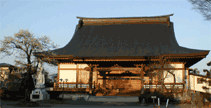  |
Can't read/view Japanese characters?
Try the romaji version instead.
Lesson 16: It's not red.
|
This lesson is a continuation of Lesson 14. Recall that Lesson 14 dealt with 'い' adjectives. First, we need to start off with a bit about one of the differences between English and Japanese. In English adjectives usually stay in their affirmative form and 'not' is added when changing to the negative. In Japanese, however, い adjectives all have an affirmative and a negative form. Thus, 'black' and 'not black' are both adjectives. In order to change an い adjective
from affirmative to negative form, change the last いi to くない. |
|
|
Example: あかい |
red |
|
|
|
| Examples: ねこはおもくないです。 |
The cat is not heavy. |
| くるまはかるくないです。 | The car is not light. |
| わたしのかさはあかくないです。 | My umbrella is not red. |
| このほんはあたらしくないです。 | This book is not new. |
| These adjectives can also be used to modify nouns. |
|
|
Examples: あかくないほん |
a book that's not red |
| おもくないえんぴつ | a pencil that's not heavy |
| あたらしくないくるま | a car that's not new |
|
|
|
|
Examples: あかくないりんごをたべたい。 |
I want to eat an apple that's not red. |
| おもくないえんぴつをつかいたい。 | I want to use a pencil that's not heavy |
| あたらしくないくるまはあおいです。 | The car that's not new is blue. |
|
Lesson 16 Vocabulary: おもい -くない あかくない つかいます |
heavy negative i adjective suffix use |